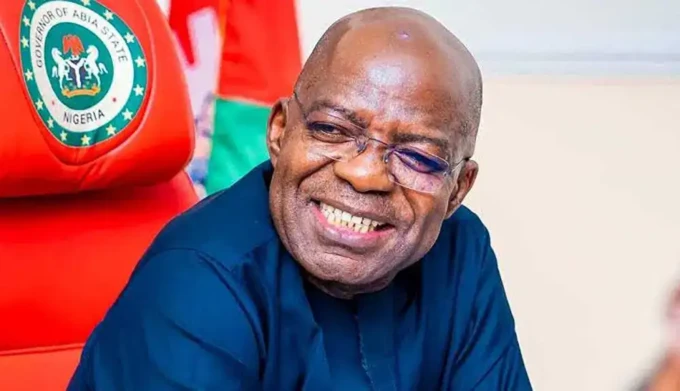Nigerian senators from both the southern and northern regions are sharply divided over the growing agitation for a return to the regional system of government. The debate surfaced during a two-day retreat held in Kano, organized by the Senate Committee on Constitution Review in collaboration with the Policy and Legal Advocacy Centre (PLAC). The retreat focused on proposed amendments to Nigeria’s 1999 Constitution.
At the event’s sidelines, southern senators expressed support for the idea, viewing it as a positive step toward addressing the country’s economic challenges, insecurity, and infrastructure deficits. They argue that a regional government would empower the various regions to manage their resources more efficiently, leading to rapid economic development. This system, they claim, would give regions greater control over local governance and allow them to implement policies tailored to their specific needs, potentially improving security by reducing dependence on the federal government.
Proponents of the regional system in the south also highlight the potential for reducing tensions between ethnic groups and promoting political stability. They believe decentralization would encourage healthy competition among regions, leading to better governance and accountability.
On the other hand, senators from the northern region have expressed strong opposition to the idea. They argue that a return to regionalism would deepen existing divisions in the country and potentially weaken the federal structure. Northern lawmakers believe that regional governments could exacerbate inequality, with wealthier regions advancing while less prosperous ones struggle, further widening the gap between the north and south.
Additionally, some northern senators fear that regional autonomy could fuel separatist sentiments, destabilizing the nation and threatening its unity. They also argue that maintaining a strong central government is essential for equitable resource distribution and national security, particularly in a country as diverse and complex as Nigeria.
The divide between the two regions on this issue reflects deeper historical, political, and economic differences within the country. As discussions on constitutional amendments continue, the debate over regionalism will likely remain a contentious issue. The challenge for Nigerian lawmakers will be finding a balance between regional aspirations and the need for a unified, functioning federal system that promotes national growth and stability.












I think its time to bring back the regional government system in Nigeria for more effective governance. Whos with me? 🤔🇳🇬 #RegionalGovernmentRevival
I think regional government is the way to go! Lets shake things up and see what happens. Time for a change!
I think the Nigerian Senators should just settle this with a rap battle. Winner takes all! Whos with me? 🎤 #RegionalGovernmentRapBattle
Seriously? This is a serious matter, not a joke. Lets be mature about it.
I think its time to bring back regional governments in Nigeria. Lets shake things up and see if it can lead to positive change!
Regional governments could worsen tribal tensions and corruption. Centralized power may be more effective.
I think regional governments could lead to more efficient governance in Nigeria. Time to shake things up! 🤷♂️ #ControversialOpinions
I think its time for Nigerian Senators to embrace innovation and consider a futuristic government system. Regional government sounds outdated.
Regional government can foster decentralization and better representation. Innovation doesnt always mean abandoning traditional systems.
I think regional government could bring more efficiency and accountability. Lets shake things up and see what happens!
I think its time for Nigeria to shake things up and consider a return to regional government. Lets mix things up!
Regional government could deepen tribal divisions. Unity should be the focus.
I think its time for a complete overhaul of the Nigerian government system. Regional government could bring positive change. #ControversialOpinion
I think its time for Nigeria to shake things up with a return to regional government. Lets see what happens! #ControversialOpinion #RegionalGovernmentRevival
I think the Nigerian Senators should all just switch roles with each other for a day to understand each other better.
I think regional government could help address local issues better. Lets shake things up and see what happens!
I think returning to regional government could bring more focused development, but it may also revive old tensions. Interesting debate!
I think its time for a complete overhaul of the Nigerian political system. Regional government could bring much-needed change and accountability.
I think its time for Nigeria to shake things up with regional governments. Lets see some bold changes! #RegionalGovernmentRevolution 🌍🔥
Regional governments could lead to more efficient governance. Its worth exploring! #ChangeIsGood 🌍👍
I think the idea of returning to regional government in Nigeria is worth exploring. It could bring more focus on local issues.
I think its time we consider a return to regional government in Nigeria. Central power isnt working, lets shake things up!
I think regional government could bring more focus to local issues. Lets shake things up and see how it goes!
I think the Nigerian Senators should consider a return to regional government for better governance. Its worth exploring!
I think Nigerian senators should focus on more pressing issues like healthcare and education instead of regional government. Priorities, people!
I think its time for Nigeria to shake things up and give regional government a shot. Lets see what happens! 🤷🏽♂️
Why not just let each Nigerian region govern itself like Hogwarts houses? Gryffindor for the win! 🦁 #RegionalGovernmentDebate
Hogwarts houses arent real. Nigeria needs unity, not division. #OneNigeria #UnityOverDivision
I think its time for Nigeria to shake things up! Regional government could bring new perspectives and solutions to our countrys issues. #ChangeIsGood
I think bringing back regional governments in Nigeria could lead to more efficient governance. Lets shake things up!
Regional governments in Nigeria could also lead to increased corruption and division. Lets consider all angles.
I think the Nigerian Senators should just settle this with a dance-off. Winner gets to decide on regional government return. Lets bring some entertainment to politics!
I think regional governments could lead to more efficient governance in Nigeria. Lets shake things up and see what happens!
I think its time for Nigeria to consider a return to regional government. It could bring more accountability and development.
I think its time for Nigeria to shake things up and give regional government a chance. Lets see what happens! 🤷🏽♂️
I think the idea of regional government in Nigeria is worth exploring. It could bring better governance and more accountability.
I think its time for Nigeria to shake things up and consider a return to regional government. It could bring new perspectives and solutions to the table.
Regional government could deepen divisions. Unity is key for Nigerias progress. Centralized power may be more effective.
I think instead of regional government, Nigeria should consider a system of rotating leadership based on zodiac signs for diversity!
I think the Nigerian senators should just settle it with a dance-off instead of arguing about regional government. Lets see some moves!
I think its time for Nigeria to shake things up with a return to regional government. Lets see if it brings positive change!
I think the Nigerian Senators should consider a return to regional government for more effective governance. Unity doesnt always mean progress.
I think its interesting how the Nigerian Senators are split on this. Regional government could be a solution or a disaster. What do you guys think?
I think going back to regional government in Nigeria could be a step towards better governance. What do you guys think?
I believe regional government could foster more local development and accountability. Senators should consider this for Nigerias progress.
Should Nigerian Senators consider regional government? Could this lead to better governance or further division? Whats your take?
What a mess! Regional government seems like a step back. Why not focus on real issues instead of old divisions?
Do Nigerian senators need to put aside their differences for the greater good? Regional government debate heats up! #UnityOrDivision
Should Nigerian senators consider a return to regional government? Divided opinions make for interesting debates. What say you?
I think its about time we consider regional governments in Nigeria. Lets shake things up and see what happens! 🤷🏽♂️
I cant believe these Senators cant agree on something as important as regional government. Whats the hold up, guys? Lets get it together!